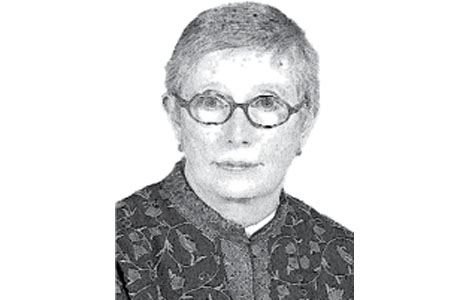
Afrasianet - Michael Jansen - The most positive statement by US President Donald Trump at the news conference following his one-on-one meeting with Russian President Vladimir Putin in Helsinki was that the US and Russia could "save hundreds of thousands of lives in Syria". Trump could make this come true by following Putin's lead in damping down the civil and proxy wars that have raged in that country since 2011.
To end the war, Trump will have to agree that Russia's ally, Syrian President Bashar Al Assad, will not step down any time soon and accept that Damascus must extend its rule over the whole of Syria.
So far, the US has, grudgingly, admitted that Assad will stay on but has not fully accepted this given. This was the policy adopted by the Obama administration which funded with billions of dollars diverse armed opposition groups, including takfiris, without achieving anything but mayhem. Apologists for the Obama line argued these groups kept up military pressure on Assad in order to force him to make concessions to the Saudi-sponsored political opposition, which never had any support inside Syria. The apologists were wrong and prolonged the war.
So far, the US has not agreed that Damascus' sovereignty over the entire country must be restored, but this is likely to come sooner rather than later.
The only armed group the US supported with advice, guns and boots on the ground was the Kurdish People's Protection Units (YPG), which had clear goals, command and control capabilities and dedicated fighters. The YPG was, however, always a problematic ally because it is closely connected with Turkey's restive Kurdish Workers' Party and is seen by Ankara as a serious threat to that country's security. Since the beginning of this year, the US has been cutting its ties with the YPG.
The US began by abandoning YPG fighters and Kurdish civilians they protected when Turkey invaded the northwest Afrin district of Aleppo province, routing the YPG and ethnically cleansing 130,000 Kurds. Subsequently, the US made a deal with Turkey that the YPG would leave the northern Syrian town of Manbij, liberated by the Kurds from Daesh in 2016. Manbij was placed under joint US-Turkish control, in a bid to placate Ankara, with which the US has strained relations.
Having used the YPG-dominated Syrian Democratic Forces (SDF) to drive Daesh from Raqqa and take over swathes of territory in Raqqa and Deir Ezzor provinces, the US now has to decide when to permit the Kurds to reach an accord with Damascus on the return of its rule to these areas. While Trump has vowed to pull out the 2,200 US special forces personnel from Syria by year's end, hawks in his administration, Defence Secretary James Mattis and Secretary of State Mike Pompeo, want to retain a military presence in Syria to offset the Russian deployment of airmen, troops and advisers and to put pressure on Moscow to compel Iranian forces to leave the country.
Although Moscow said it wants all foreign forces to withdraw from Syria, Russia has had to change its tune, arguing that the Iranians should depart only when the situation in the country is stabilised. This shift is pragmatic: the Syrian army remains under-manned and over-stretched and needs reinforcement by ground troops. Iran has said it would repatriate its forces in Syria and Iraq if requested to do so by Damascus and Baghdad.
Putin can, however, press Iran to keep allied forces far from the Golan ceasefire line between Syria and Israel which, earlier on, specified 40 kilometres. So far, Iran has gone along with this plan, although Israel has been provoking Tehran by bombing Iranian troops on bases far from the Golan. It is time for Trump to tell Israeli Prime Minister Benjamin Netanyahu to halt such attacks. He has said Israel has no problems with Assad as long as his armed forces abide by the 1974 disengagement agreements ending the conflict over the Golan Heights. He has also claimed, untruthfully, that Israel is not involved in the conflict in Syria.
Russia became the "indispensable" actor in Syria when its air force began to provide cover for Syrian forces in battles with rebels and takfiris in late September 2015. Moscow's intervention has rolled back insurgents in Damascus' suburbs, Aleppo and Deir Ezzor and now, in the south. On the peace front, Moscow has joined with Iran, a second ally of the Syrian government, and Turkey, a key opponent, in the search for a political settlement. UN-mediated talks have stalled as the Russian-supported Syrian army has advanced on all fronts, making it clear Moscow will have a major role in peacemaking when the time comes.
All roads lead to Moscow. Since the beginning of this year Putin has received a parade of visitors seeking to build good relations with Russia. His Majesty King Abdullah sought Moscow's help in averting a regional war. Saudi Crown Prince Mohammad Bin Salman conferred over the price of oil. Palestinian President Mahmoud Abbas needed an ally against Trump and Israel. Iranian President Hassan Rouhani wanted the Russians to stand against sanctions following Trump's withdrawal from the nuclear deal. Netanyahu, who has visited Putin three times, discussed Syria.
Russia's regional strategy is to preserve the political status quo instead of stirring up trouble. Ahead of the Putin-Trump summit, Russian Foreign Minister Sergey Lavrov castigated the US and NATO for their wars on Iraq and Libya which, he said, killed more people than ousted leaders Saddam Hussein and Muammar Qadhafi had done.
During the Helsinki summit press conference, Putin spoke of a major difference of opinion with Trump, who has pulled the US out of the nuclear deal with Iran.
Putin stated, "Let me remind you that thanks to the Iranian nuclear deal, Iran became the most controlled country in the world. It submitted to the control of IAEA. It effectively ensured the exclusively peaceful nature of Iranian nuclear programme and strengthened the non-proliferation regime."

